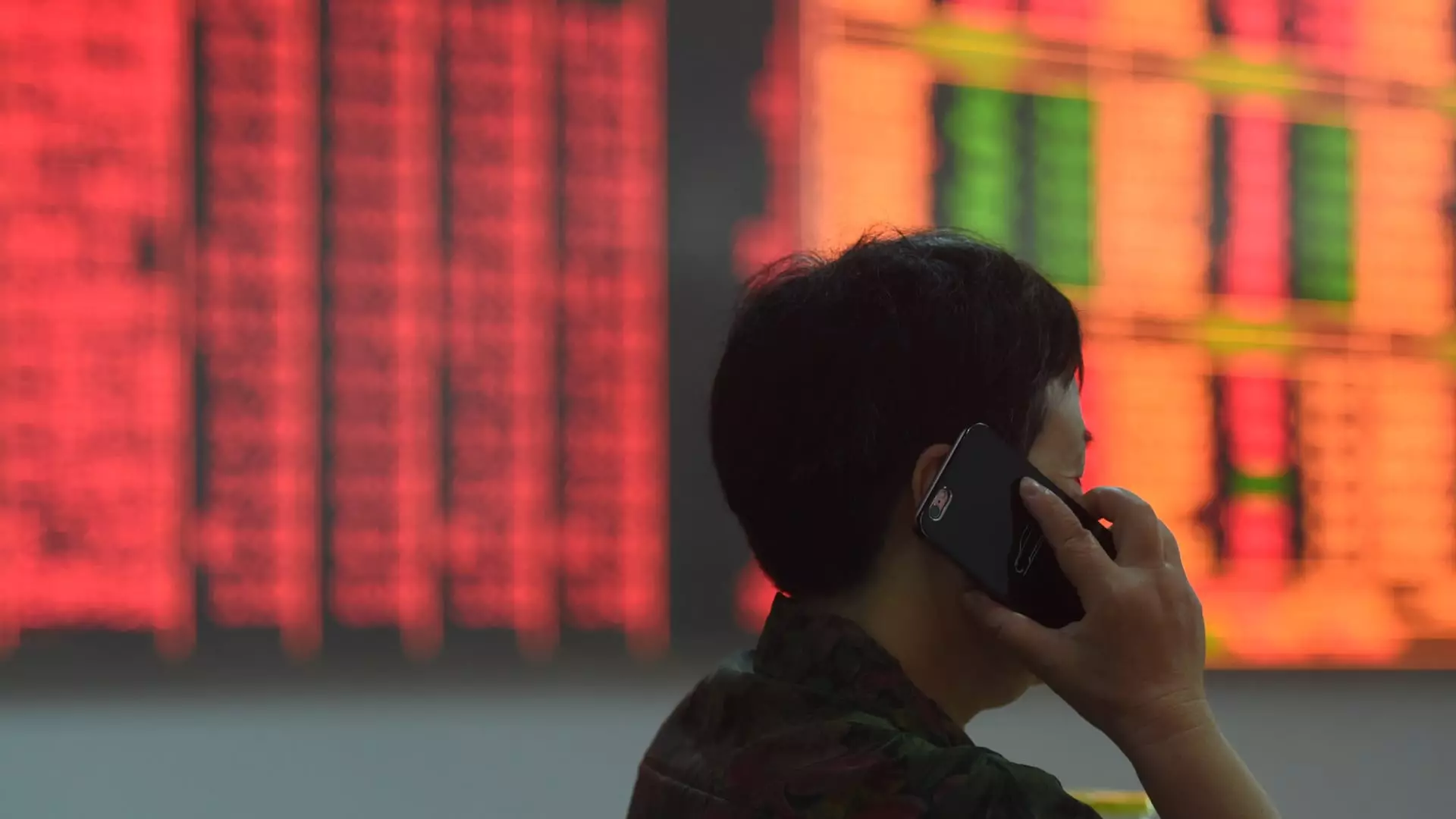China stands at a critical juncture in its economic landscape, with analysts stressing that the latest policy pronouncements from the Beijing government reflect more of an intent to stabilize sentiment than to tackle the underlying problems plaguing its economy. The recent rally of the Shanghai Composite Index to a three-month high has sparked a keen interest among investors and market watchers alike. This uptick followed reports of a high-stakes Politburo meeting chaired by President Xi Jinping, where discussions centered around reversing the steep decline in the real estate sector and implementing measures aimed at revitalizing the economy.
However, despite the optimistic tone of the media, these discussions yielded little in the way of actionable specifics. As Ting Lu, Chief China Economist at Nomura, indicated, the government’s fragmented approach thus far has fallen short. Real solutions are essential to address the entrenched problems that are severely affecting growth, rather than relying solely on immediate market reactions.
While the stock market has reacted positively to these high-profile meetings, the real economy continues to show signs of distress. Growth in China—now the world’s second-largest economy—has significantly dulled, largely driven by a stagnating real estate market. With retail sales barely edging up, and industrial profits stagnating during the first eight months of the year, the situation is increasingly dire. Exports remain a lone bright spot amidst these challenges, yet their potential to foster a broad-based recovery is limited.
Nomura’s Lu suggests that any additional liquidity injections by policymakers might not significantly exceed 3% of China’s annual GDP, raising concerns about the proposed stimulus’s effectiveness. The consensus emerges that a hasty stimulus package without careful design could lead to a gradual and restricted growth momentum.
In recent actions, the People’s Bank of China (PBOC) has reduced interest rates and extended plans to lower rates for existing mortgage holders. However, the broader implications of these moves remain precarious. Despite the lowered cost of borrowing, consumer hesitance to take on debt underscores a deeper psychological barrier that the government must surmount.
Paul Christopher from Wells Fargo Investment Institute emphasizes that merely cutting interest rates hasn’t catalyzed consumer confidence. Instead, these monetary policy adjustments require a foundational shift in how households and private enterprises perceive the economic landscape. With investment institutions expressing skepticism regarding Beijing’s willingness to implement sizable stimulus, the gap between expectation and perception appears daunting.
The government has faced backlash due to its stringent regulations on various sectors, including real estate and technology, resulting in diminished business and consumer confidence. Although recent weeks suggested a softening of this stance, it remains uncertain whether these signals will translate into renewed trust from businesses and individuals alike.
Investigative findings from the China Beige Book indicated that corporate borrowing has dropped despite historically low borrowing costs, further signaling faltering confidence among enterprises. Shehzad Qazi, COO of the China Beige Book, highlights the disparity between the potential for a wealth effect from rebounds in the stock and property markets versus the tangible wealth losses experienced in recent years.
Despite the myriad challenges, some analysts are expressing cautious optimism regarding the potential for a late-year rally in retail sales, alongside a robust performance in the stock markets. The CSI 300 index’s trajectory has witnessed its best week since 2008, urging retail investors to take a more favorable stance on beleaguered Chinese equities.
However, analysts underscore the pivotal need for substantive policies that can foster a healthier capital market—critical for sustainable economic growth in China. Bruce Liu of Esoterica Capital maintained that the recent high-level discussions must lead to clearer action items to bolster confidence in the financial sector, which has suffered from historical negative perceptions.
Conversely, the clear and present danger remains: the rallying stock prices may prove ephemeral if they don’t translate into real economic recovery. As the nuances of China’s economic policy become clearer, investors will need to navigate a landscape where sentiment does not necessarily reflect reality. The coming months will prove crucial in determining whether China can execute the necessary reforms for long-lasting stability, or whether it remains trapped in a cycle of reactive sentiment without addressing its foundational economic challenges.

